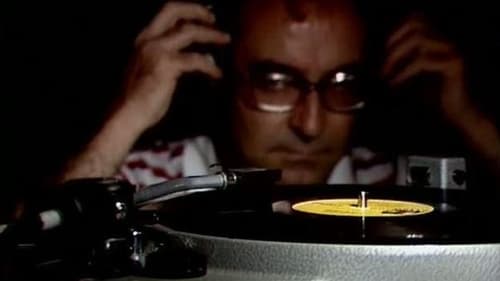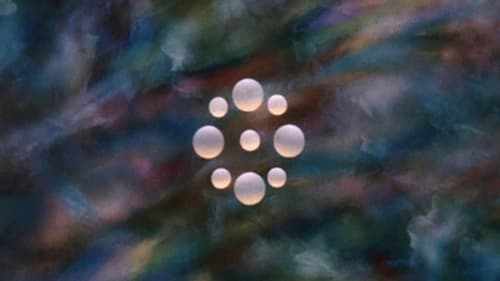Ballet Adagio (1972)
장르 : 음악
상영시간 : 10분
연출 : Norman McLaren
시놉시스
A slow-motion study by Norman McLaren of the pas-de-deux adagio, one of the most exacting and difficult dances of classical ballet. A ballet originally choreographed by the Russian ballet master Asaf Messerer is performed for this film by the internationally known Canadian pair, David and Anna Marie Holmes, to the music of Albinoni’s Adagio. A film to heighten the aesthetic appreciation of classical ballet and to afford observation of the technique and mechanics of the adagio movements.

In this early film Norman McLaren shot crystal formations through a low-power microscope, using polarized light with the lower part of the picture masked off. The film was then rewound and a scene of dancers was filmed.

Taking "Isle of the Dead," a work by the Swiss symbolist painter Arnold Böcklin as his starting point, Norman McLaren creates a deeply disturbing surrealist dream.

This publicity clip for Canada Post is Norman McLaren's first film for the NFB. For this animated short, McLaren drew symbols by pen onto clear 35 mm stock, which was then superimposed on a photographed painted background. Benny Goodman's rendition of Jingle Bells provides the accompaniment. (NFB)

A gay fantasia of patterned sound in which Norman McLaren salutes the West Indies, painting the spirit of fiesta on film to the lively beat of an island tune by Trinidad's Grand Curacaya Orchestra.

An animated film in which colored shapes dance to calliope music. The visuals were drawn by Norman McLaren directly upon the film with pen and ink. Simple forms dance about the screen to the discordant strains of an old-time circus calliope.

Animation featuring dancing black and white shadows.

A color cocktail by Norman McLaren and Evelyn Lambart, translating into moving patterns of color and light the moods of music written for a jazz ensemble by Eldon Rathburn. Inscribed and colored directly on film.

This animated short by Norman McLaren is a publicity message for a war bond campaign. Symbols, a stick man and lettering are drawn directly on 35mm film stock and synchronized with a brass band rendition of Sousa's march "The Thunderer."

Ingmar Bergman speaks with Gunnar Bergdahl.

A man visits the panels of a comic page-like world in search for his loved Gloria.

This short film is Godard’s message to the people of Lausanne, specifically journalist and critic Freddy Buache, addressing his reasons why he will not make a film about their town’s 500th anniversary. Rather than cynical or defensive, Godard's bemused narration of the footage of Lausanne is imaginative and even playful, a rumination on cinema's possibilities.

A short about Romanis in Sweden breaking up camp and moving on.

This animated short is a play on motion set against a background of multi-hued sky. Spheres of translucent pearl float weightlessly in the unlimited panorama of the sky, grouping, regrouping or colliding like the stylized burst of some atomic chain reaction. The dance is set to the musical cadences of Bach, played by pianist Glenn Gould.

Three separate sequences related to Christmas, animated in different styles: cutout animation of children dancing in the snow to "Jingle Bells," stop-motion animation of toys come to life, and cel animation of a man who seeks the ideal star to top his Christmas tree.

In 54 static shots, Benning provides a picture of the Natural History Museum in Vienna. With the exception of the first three shots, he chooses areas that are normally closed to the public: offices, store rooms and empty corridors. A characteristically meditative Benning, even though this time he chooses to stay indoors.

To the tune of a classic French-Canadian nonsense song, surreal blackbird made of lines loses body parts and gets them back threefold.

Rythmetic is a 1956 Canadian short animated film directed by Norman McLaren and Evelyn Lambart where numbers are the main characters.

A portrait of a traveling circus.

Paper cutouts over images of mixed colorful liquids, creating hypnotizing swirls and aesthetic explosions, as well as combining original and futurological sounds. Starting with the relentless hunting of antelopes, the geometric cutouts show the constant struggle between the warring groups. We have been observing it since the primeval times, when the tools of the battles were arches and spears, through the times of the domination of swords, later replaced by firearms. The increasing automation and power of war machines, the emergence of tanks and aircraft, eventually the use of weapons of mass destruction lead to total annihilation

A man sets a ping-pong ball into motion and it becomes fruitful and multiplies.






